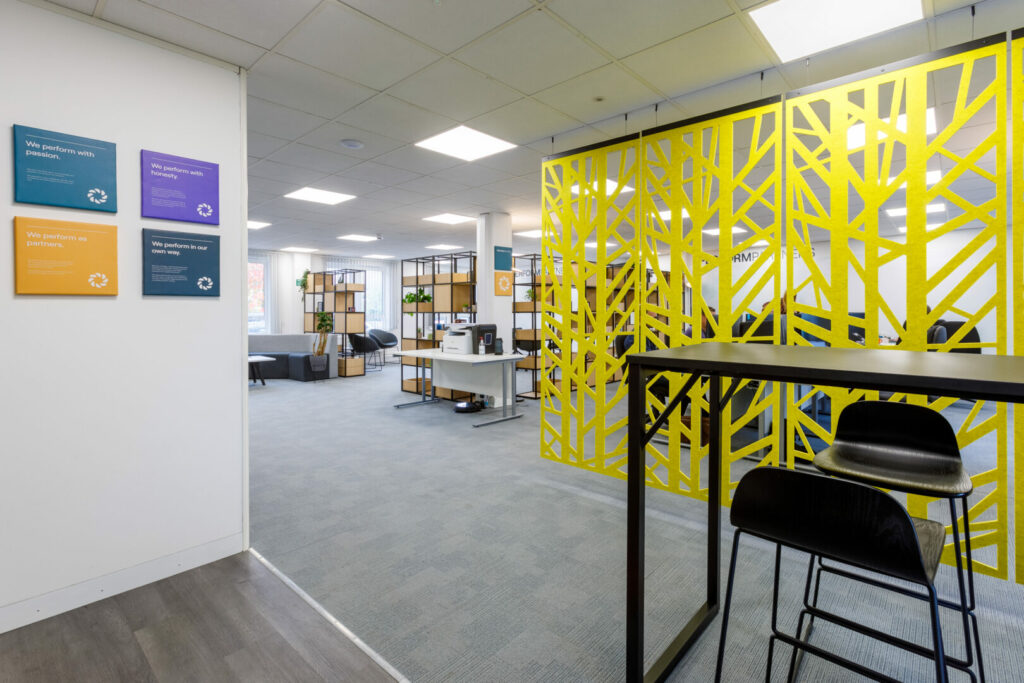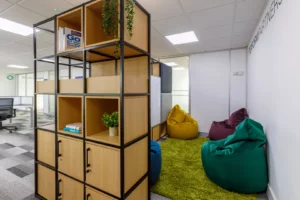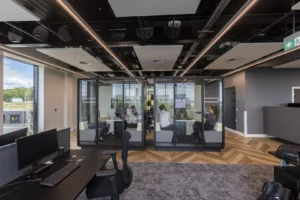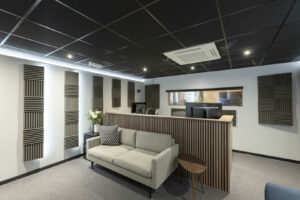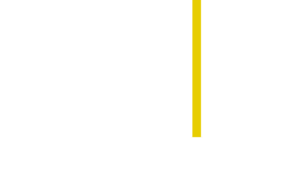The design process is the third phase of our five step process into delivering cutting edge workspaces for our clients. It follows the consult and translation phases, where we learn about the client, what they want from their workspace and how that can be made a reality. Once we have a clear understanding of what the new space needs to deliver and what kind of business will be operating within it, we can get creative.
What it means
Designing a new workplace runs far deeper than pure aesthetics. Successful workplace design should embody a business’ ethos, foster a positive working environment and help elevate them to the next level. Whilst every phase of the process is vital, this stage is where ideas start to become tangible.
Enhancing innovation
The design process is rich in creativity. It’s where we can turn a client’s wants – such as achieving a certain feel or helping spark more creativity – into designs that our clients can see and experience. As well as listening and engaging with our client’s requests down to the very last detail, we also offer innovative ideas that they may not have considered.
After presenting two to three designs, sometimes clients may love particular elements from each. In those instances, we take a flexible approach and can merge ideas to create a final design that looks, feels, and performs like the tangible embodiment of that business, and that business alone.
Why it matters
If a business’s new space is to help it grow and flourish, it needs to echo that company’s values. For the high end hospitality venue, Excslve, gold finishes married with a low-lit aesthetic and premium quality offered a sense of exclusivity and luxury. The space therefore became an extension of its brand.
The colour palette that best represented the consultancy business, Perform Partners, meanwhile, was vibrant and eclectic. As a result, we peppered its spaces with bright colours and a variety of breakout spaces. We used a soft green carpet in the social area of the office to add a quirky character and colour that isn’t too overwhelming. Responding to a key element of the brief, which was for the space to be flexible and collaborative, we did not opt for fixed partitions. The soft furnishings also enhanced a welcoming feel to ease people back into the office after working from the comfort of their homes.
In both instances, what we created was resolutely theirs; how we went about it, however, was completely different. This is why calculated office design is crucial.
